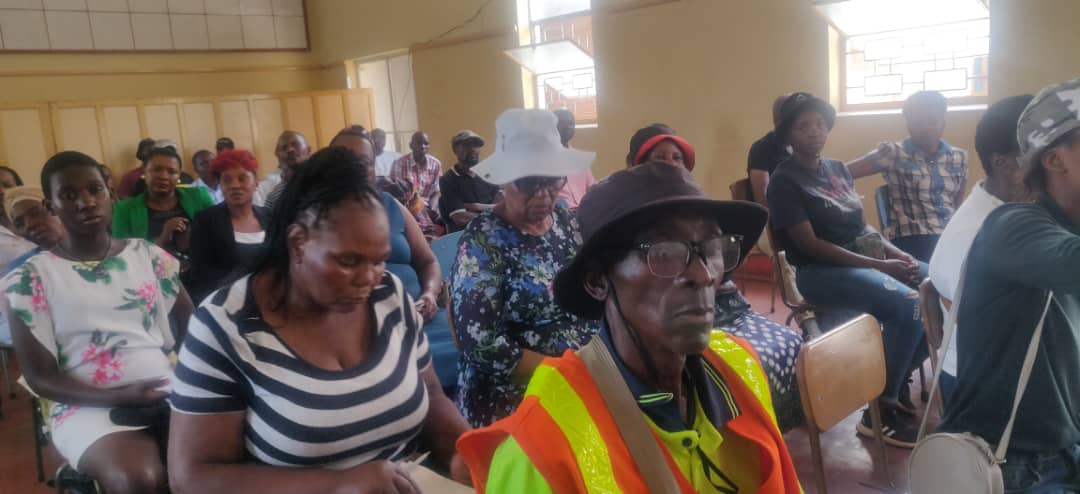Small to Medium Enterprises (SMEs) and informal traders have asked the government for a six-month grace period to assist them familiarise with the new tax legislation and avoid paying tax during that time.
The request for the six-month moratorium was made during a public meeting on Tuesday with informal traders hosted by the Bulawayo Informal Sector Working Group (BISWG) to discuss the impact of the Ministry of Finance, Economic Development, and Investment Promotion’s new measures set in terms of the Finance (No.2) Act 13 of 2023, which spells out how manufacturers, wholesalers, retailers, informal traders, and individuals should pay tax.
Last year during the 2024 national budget presentation, the finance minister, Professor Mthuli Ncube, announced measures to make vast segments of the informal sector to register for tax purposes, even if the businesses do not make enough to pay tax.
Under the new measures, manufacturers and wholesalers are limited in what they can sell to those who are not tax compliant because they must do business with those who are.
This means that retailers, informal traders, and individuals who are not registered for Value Added Tax (VAT) will not buy goods from wholesalers if the price exceeds US$1000 or the equivalent at the auction rate of exchange.
However, during the public meeting, several informal traders said they needed more time to familiarise with the tax certification scheme before they could start paying tax.
“We are requesting for a six month moratorium because if informal traders have to comply with taxes, there is technology that they need and it takes time to have it. We are hoping that the government can give a special exemption moratorium to SMEs and give them time to comply because the penalties are painful,” said a participant, Stevenson Dlamini.
Dlamini added that informal traders needed to master the ‘My tax service system’ or the tax certification scheme managed by the Zimbabwe Revenue Authority (ZIMRA).
“It will be difficult for the traders to understand or comply with the new regulations. There is a need for a moratorium so that during that period, SMEs and the informal sector can go through training on how to comply and learn other legal implications they need to understand,” Dlamini said.
An informal trader, Solane Ncube also queried how they could manage to pay formal tax when vendors were self-sustaining since there is no employment.
“There are no functional traders in Bulawayo, we are now employing ourselves and from the little we get, we are now supposed to pay tax, register on time. To be honest, it’s hard for us to pay for everything that is needed by the government,” said the informal trader.
Ncube predicted that the new tax obligations may not result in the growth of the informal sector as expected by the finance minister.
Her views were buttressed by another participant, Trust Mkwananzi, who said the new tax measures would squash the small enterprises instead of promoting their growth.
“If you are small and required to pay this and that, automatically you are being set for failure,” Mkwananzi said.
Mkwananzi added that financial institutions which were supposed to boost small businesses were not ‘small scale enterprise friendly’ as they do not offer funding.
“SMEs should not be subjected to paying exorbitant fees but be able to even access licences,” he said.
Another participant, Percy Mcijo blamed the finance ministry for not holding consultation meetings with the relevant groupings.
“The first thing that was supposed to happen was to have consultations on the budget. I think this is the only budget that was done without consultation. Consultations are specified in the constitution because the budget is supposed to come from the people but this time that process was by-passed,” Mcijo said.
Mcijo claimed Zimbabwean officials were “good at creating policies but failed to implement those policies.”
Dumisani Ncube, who is in the Advisory Council of SMEs for Bulawayo, Matabeleland North and Matabeleland South, concurred there is a need for informal traders to have more training on the tax certification scheme.
“People don’t understand the Statutory Instruments, the policies that are there and the benefits of why they should register. They don’t understand it,” Ncube said.
Ncube said his next role is to be more active in educating informal traders and doing more advocacy to help SMEs interpret laws that are there.

